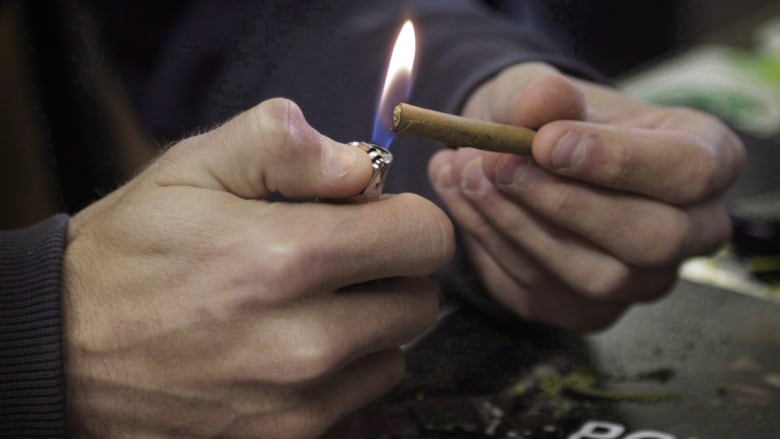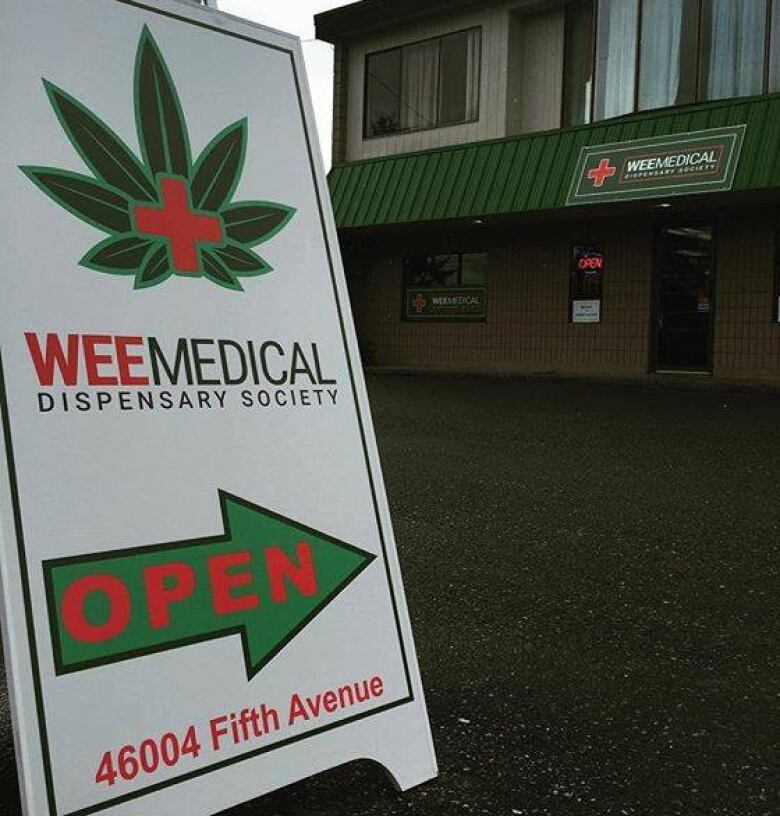Medical cannabis rules still hazy for Canadian convicts, judgment shows
B.C. judge says offenders need more direction on 'what they must do and how to go about it'

Seventeen years after Canada legalized medical marijuana, the corrections system is still grappling with how to handle convicts who say they need pot for health reasons, a recent B.C. court judgment reveals.
The case of Kevin Scott Miller, a repeat sex offender with a history of breaching the conditions of his release from prison, lays out some of the confusion over regulations for inmates and parolees who use medical cannabis.
It also shows how the issue is complicated by the recent proliferation of legitimate-looking but illegal dispensaries across the Lower Mainland.
Last month, B.C. Supreme Court Justice Neill Brown found Miller not guilty of failing to comply with his long-term supervision order (LTSO) when he was caught smoking pot while living in a Chilliwack halfway house in 2016.
"I am left with a reasonable doubt he consumed an intoxicant without reasonable excuse," Brown wrote.
The judge said Miller's case demonstrates the need for the correctional system to be more clear with offenders about regulations around medical marijuana and for court-ordered conditions to be more specific about what counts as a prohibited drug.
"These practical considerations do not require D-Day logistics," Brown wrote. "The focus should be not just on the wording of the condition but on developing an informational and supervisory system that ensures the offender knows what they must do and how to go about it with the advice and oversight of their parole officer and health liaison."
Major policy changes
At trial, there was no question that Miller's LTSO required that he "must abstain from intoxicants." And he did not deny smoking or dispute tests that showed tetrahydrocannabinol (THC), a psychoactive chemical in cannabis,in his urine.
But the issue was whether Miller had obtained his stash legally or, at least, thought he had obtained it legally and if marijuana still counts as an intoxicant when it's used for medical purposes.

"I accept he honestly believed a suitable strain would treat certain medical conditions afflicting him," Brown wrote of Miller. "He obtained what I accept he believed to be a proper prescription from a doctor."
In the last few years, medical marijuana has become "a big thing" in the prison system, one of Miller's parole officers told the court. In response, the Correctional Service of Canada and the Parole Board of Canada have been making major changes to their policies on the drug.
For example, at the beginning of 2016, the year Miller arrived in Chilliwack, residents of his halfway house were required to store medical marijuana offsite. Then the rules were reversed, and pot suddenly had to be kept in a secure location onsite.
Meanwhile, Miller "does not appear to have had written CSC policy or access to the Internet to look up the aforesaid regulations," the judge wrote. Miller's LTSO prohibited him from going online.
'In his mind, it was a legally authorized dispensary'
Miller first got a doctor's prescription for medical marijuana in 2014, when he was living at Belkin House in downtown Vancouver.
He said he wanted to use pot to deal with arthritis pain, anxiety and difficulties with sleeping, and his parole officer told him he would need a prescription to make that happen, according to court documents.
He used the prescription to get a membership at Eden Medicinal Society, one of dozens of illegal dispensaries popping up in Vancouver, rather than going through the legal system approved by the federal government.
Without access to the internet, Miller saw that Eden "had several dispensaries in Vancouver and in his mind, it was a legally authorized dispensary," the judge wrote.

By the time Miller was transferred to Chilliwack in 2016, his prescription was still valid, and Eden sent his information to another illegal outlet the WeeMedical Dispensary Society. That's where he purchased the drugs that led to his arrest.
Despite issuing an acquittal, the judge said Miller should not feel he has free reign to smoke marijuana, writing that, "Consultation with the parole officers, further guidance from and discussion with the Parole Board of Canada is called for."












_(720p).jpg)


 OFFICIAL HD MUSIC VIDEO.jpg)
.jpg)



























































































